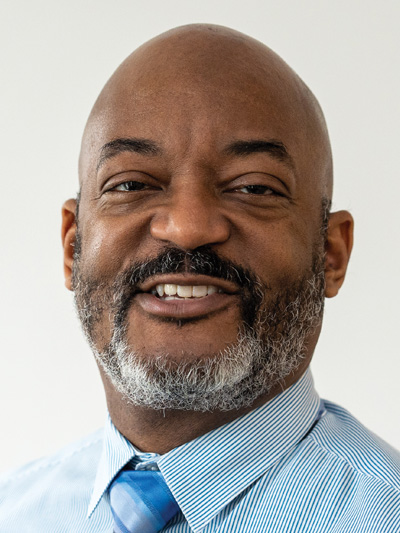Releasing the negative and embracing the positive
Many years ago I received a notice from the state Department of Health to come in for a follow-up STI counseling session. I was not happy about receiving a gonorrhea diagnosis and didn’t want to do this part of the STI treatment process. But when I saw that my counselor was a colleague, a kind Christian woman with whom I had quite a few pleasant interactions, I thought maybe the session wouldn’t be so bad.
I was so wrong.
When I admitted to having multiple sexual partners, she gave me a stern lecture about how I needed to find a man to settle down with and just be monogamous, and that was the best way for me not to catch diseases. When I tried to voice my objections and concerns, she talked over me by repeating what she had said. After a while I just muttered “okay” to whatever she said, not paying attention. As I left her office, she smiled softly and said “I love you.”
As a result of my experience, I never returned to that clinic. Nor did I encourage people to go. Our negative provider experiences have ripple effects.
It’s because of experiences like the one I described above, as well as experiences as a provider where I was judgmental with clients, that I began to explore and embrace sex positivity and pleasure-based strategies in my work.
What do I mean by “sex positivity?” I use this definition courtesy of the International Society of Sexual Medicine: It involves having positive attitudes about sex and feeling comfortable with one’s own sexual identity and with the sexual behaviors of others. I also like the definition of pleasure-based strategies, provided by the Pleasure Project: “A pleasure-based approach is one that celebrates sex, sexuality and the joy and well-being that can be derived from these… It focuses on sensory, mental, physical and sensual pleasure to enable individuals to understand, consent to and gain control over their own bodies and multi-faceted desires.”
In an industry that centers around a virus that is transmitted primarily via sexual activity, one would think that talking about sex and pleasure in an affirming way would be a “given” for HIV prevention. It is not. For far too long, talking about HIV prevention and sexual health in general has been mired in fear of disease and death.
One thing I have learned about sex positivity is there is no room for proselytizing in relationships, including the consumer/provider relationships. What do I mean by that? Most of us associate “proselytizing” with religious persuasion. We may understand that the provider space is not the space to push our religious beliefs onto consumers who come to us for service. Yet we cannot let our own sexual beliefs and behaviors dictate what we tell our clients. For example, as someone who is non-mongamous, my colleague did me no favors by directing me to “marry, or at least settle down.” I wasn’t ready for that at the time. By the same token, I have to honor the consumers who tell me that they are monogamous, and further explore ways to reduce their concerns about STIs and still enjoy the sex they want. (I prefer the word consumer because ironically, I think client-centered still suggests a power dynamic that says we as the provider have the power, access and means, and you still rely on us. Consumer recognizes that the person who comes to our space for services is actually operating in agency, in self-determination. It’s not desperation, it’s agency, particularly if they have insurance that pays for them. There are plenty of places they can go to.)
A pleasure-based approach is one that celebrates sex, sexuality and the joy and well-being that can be derived from these…
This speaks to the public health principle of “client-centered care.” Focusing on the needs and desires of the people who come to us for services results in a safe space for HIV prevention and care. Why is this important? Many of us in HIV prevention may be familiar with the “HIV care continuum,” also known as the Gardner Scale. This measure of the effectiveness of HIV prevention and care efforts is represented by five bars, signifying diagnosis, linkage to care, treatment, retention and virus undetectability. I want to acknowledge my friend and colleague Louis Shackelford, who introduced me to the concept of the “Bar before the Bars.” It’s an expansion of the care continuum that acknowledges that consumers (and providers) bring a host of experiences to an encounter that may act as barriers to accessing services.
I cannot mention how many times consumers come to the provider space with their stuff (anxiety, shame and fear) if they need to get tested for STIs, particularly HIV.
As a provider, I don’t need to add to that. As a provider, I need to teach and reinforce that pleasure is an integral part of sexual health, even when accessing sexual health services. This is where “fun” comes in. Knowing that consumers may be feeling bad about needing to come to the clinic, I do my best to make the experience as “light” as possible. When a client feels embarrassed about having multiple partners, I congratulate them on being “sexually successful” (borrowing a phrase from a colleague). When consumers get concerned that they are “ticking off” so many boxes in their sexual history, I share that I am also sexually active (without going into details), so there is no judgment from me about their behaviors. People are coming in saying, You can’t relate to what I go through. Sometimes we do need to bring ourselves into the conversation, to say, Yes, I have gone through the same thing. I don’t make it about me, but I bring empathy. Even when there’s embarrassment over a gag reflex with the throat swab, I gently remind them (with a smile) that this is not “the same thing,” so such a reflex is fine. I have found that after the laughter and smiles, clients are not only more open to discussing prevention methods to reduce their STI concerns but are also more open to discussing treatment options if they get a result they don’t expect.
I hope my experiences show that, as providers, we can communicate with our communities about sex and sexual health without shame, judgment or awkwardness. And contrary to how many of us have been trained, we can bring our full selves to the provider space and still offer consumer-centered services.

Rodney (Rod) McCoy, Jr. is a research assistant at Us Helping Us in Washington, D.C.


